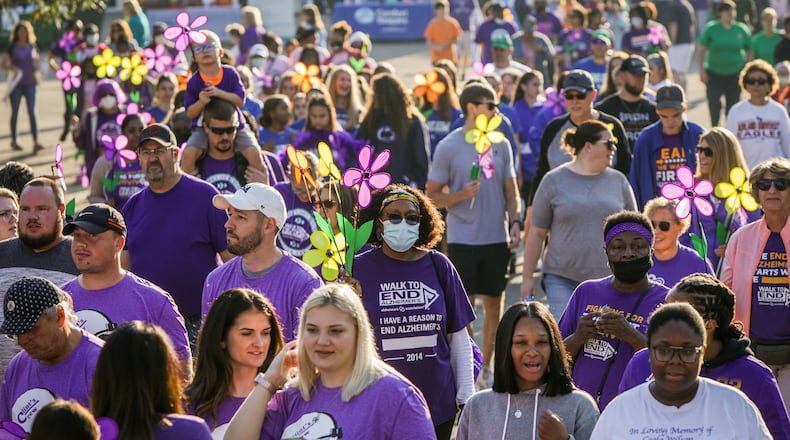“This allows us to continue to provide 100% of the services to the community at no cost,” said Karen Carter, VP of development for the local chapter.
Walks this year took place in five different locations in the Dayton area, including around the Day Air Ballpark in downtown, and others walked in their own neighborhoods.
For the 2021 Dayton Walk specifically, the goal was to raise about $450,000, and as of Oct. 25 had raised $431,293, or about 96% of their goal.
There were 1,194 participants on 331 teams with the Dayton Walk this year.
Alzheimer’s continues to have a huge impact in the state, with an estimated 220,000 Ohioans who live with the disease and about 442,000 family caregivers.
Life with Alzheimer’s can be isolating and overwhelming without support. The chapter works to connect families to resources and hosts support groups so people can find community with others in the same situation.
Carter said the Walk is important for fundraising for services, but also for building awareness that services are out there.
“Our greatest tool to reach more people is the walk,” Carter said.
Over 78% of the money is directly spent on mission, Carter said.
This includes one-on-one consultations to families in the community that are concerned about a loved one’s memory, or behavior that may indicate that there could be a potential memory problem or illness.
They also provide support groups throughout across their service area.
In addition, they provide educational courses at organizations, businesses, and churches to educate people on healthy brain behaviors, warning signs, and other specialized topics.
They also operate a helpline 24/7 at 1-800-272-3900. Donating $1,000 funds two days of 24/7 Helpline support at 1-800-272-3900.
“That helpline is available and staffed by licensed social workers 24 hours a day,” Carter said.
About the Author

